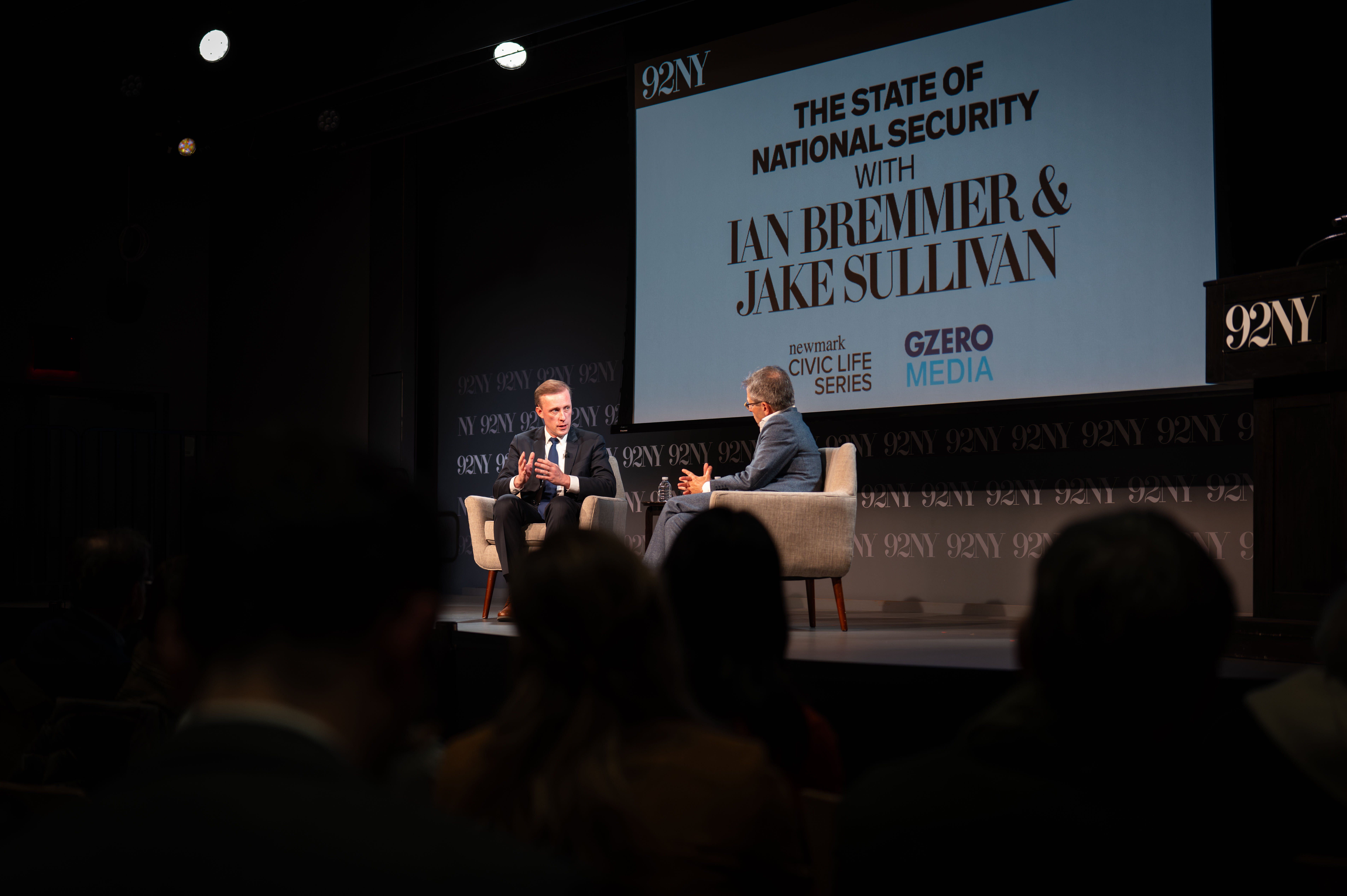EXCLUSIVE: An Interview with outgoing US National Security Adviser Jake Sullivan
America’s adversaries are looking to exploit the transition period between the Biden and Trump Administrations, China has a fateful choice to make about its own role in the world, and the biggest challenge for US foreign policy might have more to do with clean energy than hard power, according to outgoing US National security Adviser Jake Sullivan.
Sullivan, speaking with Ian Bremmer before a live audience at 92Y in New York on Tuesday as part of a special episode of our nationally-syndicated television show GZERO World with Ian Bremmer, shared his views on key US foreign policy issues at what he said was “a huge, plastic moment of turbulence and transition” in global politics.
A few highlights:
On the transition to Trump. Despite huge differences of opinion about policy, he said, Team Biden has been working hard to ensure that with Team Trump everyone is “singing from the same song sheet” on key risks, in particular the prospect of a weakened Iran accelerating its nuclear program.
The unexpectedly swift collapse of the Assad regime, he said, is a moment of “promise but also profound risk” in which the US must work both with its Kurdish allies in the country as well as with other outside powers to ensure that the country doesn’t become a power vacuum and a haven for international terrorism.
A “just peace” in Ukraine should be “up to the Ukrainians.” He said he hoped Trump will “continue to provide Ukraine with the defensive capacity so that Ukraine's in the best possible position on the battlefield, which will put them in a better position at the negotiating table.”
Russia is more beat up than it looks. High inflation, unsustainable spending, and staggering combat losses in Ukraine are taking a toll, he said. “The conventional wisdom from a few months ago was ‘Russia's got it made in the shade economically, they can do this indefinitely’ – I don't think the economic signals we're seeing right now bear that out.”
China has a big choice to make. Does it want to slip deeper into an axis of reactionary powers like Russia, Iran, and North Korea, or does it want to assume a more constructive global role, even as it competes with the US? “The world,” he said, “should put the onus on China to make the right choice.”
What worries him most? “The one thing that makes me nervous,” he said, “is the need for us to deploy clean energy rapidly enough to power the computing power necessary to stay at the cutting edge of artificial intelligence.”
For more of the conversation: including what Sullivan learned from spending hundreds of hours with Chinese foreign minister Wang Yi, why he thinks Joe Biden’s foreign policy planted seeds that will bear fruit “for a generation”, and how an American invasion of Canada might compare with Vladimir Putin’s invasion of Ukraine, keep an eye out for Ian’s GZERO newsletter, dropping later today.
And to catch the whole interview: tune in to GZERO World with Ian Bremmer airing on PBS-affiliates nationwide starting Friday. More info here.
